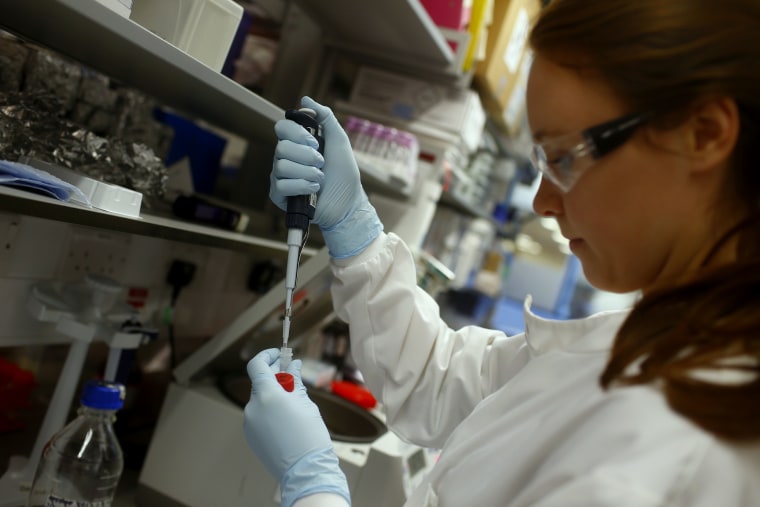There has been a potential major breakthrough in the treatment of the deadly disease that threatened the U.S. and continues to devastate West Africa.
The World Health Organization (WHO) on Friday approved the first rapid test for the Ebola virus, which killed more than 9,000 people in the West African nations of Liberia, Sierra Leone, and Guinea combined. WHO recently said the number of new Ebola cases dropped to its lowest levels in seven months. Thomas Eric Duncan was the first Ebola patient to die on American soil.
RELATED: Schools reopen in Liberia after Ebola crisis
U.S. firm Corgenix Medical Corp developed the test, which is less accurate than the standard procedure but easy to perform, doesn't require electricity, and provides results within 15 minutes, Reuters reported. The new test can quickly identify people who need to be quarantined. It usually takes 12 to 24 hours to get results for a typical laboratory test.
The Corgenix test requires putting a drop of blood on a strip of paper and waiting 15 minutes for a reaction in a test tube. It is expected to identify about 92% of infected Ebola patients correctly. WHO officials realize the test is not perfect, and are assessing a handful of other rapid test possibilities. The U.S. Food and Drug Administration needs to finish administrative procedures before the test can be used.
The largest Ebola outbreak in history has affected thousands of people throughout West Africa since last March, when 49 cases were first detected in Guinea. The virus is spread through direct contact with body fluids. American doctors and nurses, along with representatives from humanitarian groups, have traveled to the region since the crisis began. Some U.S. states imposed mandatory quarantines on returning medical personnel, but federal health officials called for less severe measures.
In December, Massachusetts dedicated $1 million to help develop a quick, finger-prick test for the disease. The medical tool is expected to decrease the time health officials in West Africa must wait to obtain results from far-off laboratories.
Billionaires Bill and Melinda Gates in November pledged $5.7 million in the fight against the deadly virus. The philanthropists said they are searching for a way to enhance the treatment of infected patients with a variety of research projects, including funding tests on experimental drugs and collecting blood plasma from Ebola survivors for use in treating victims in West Africa.
